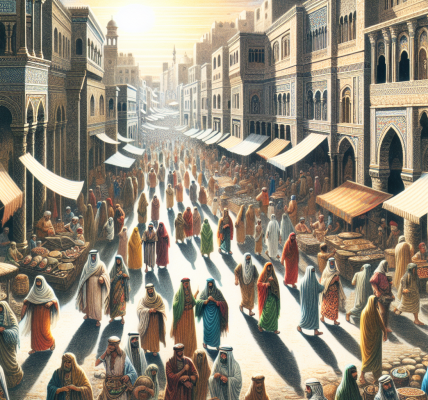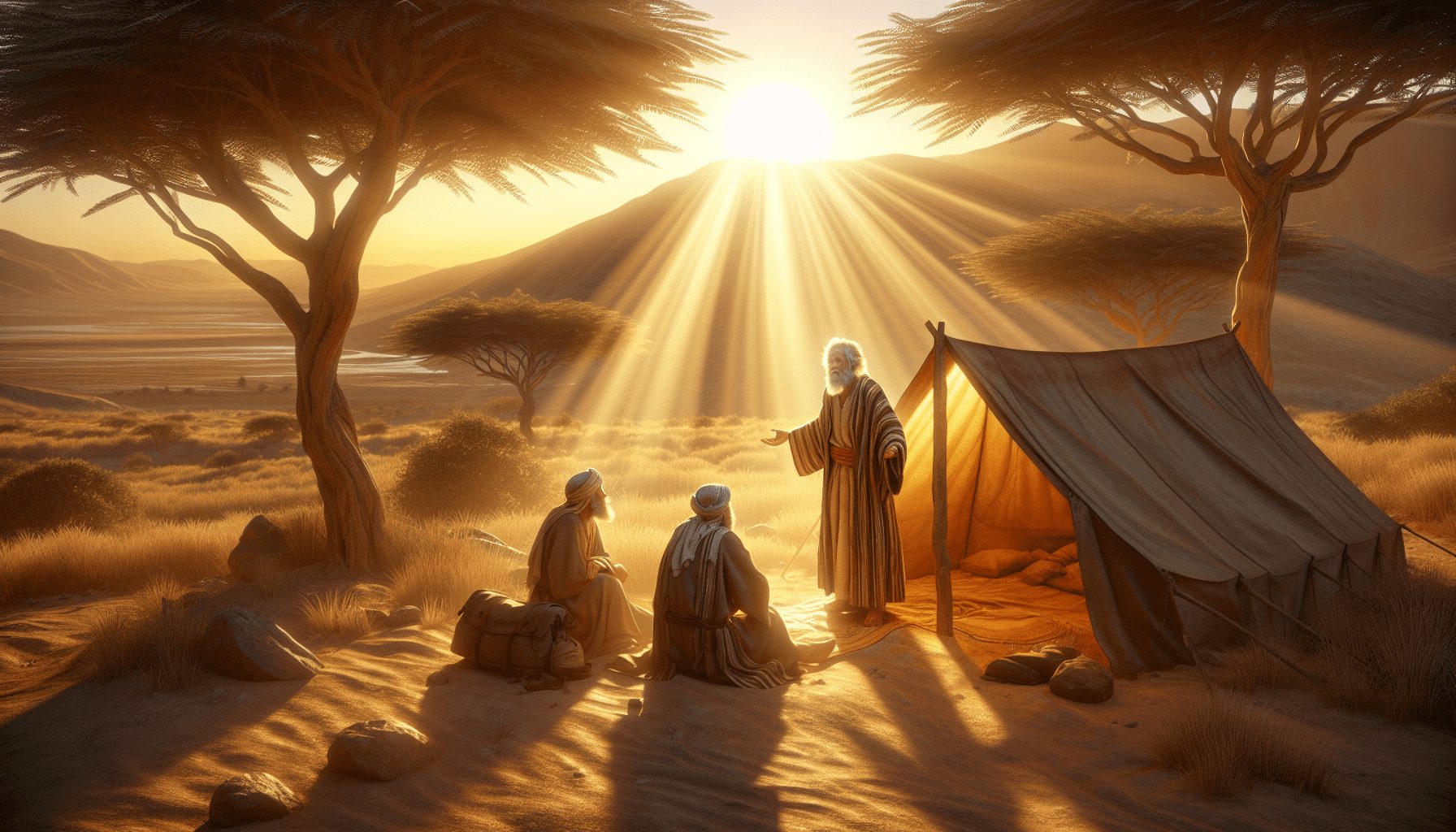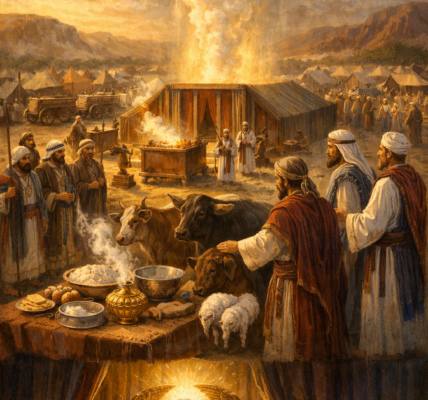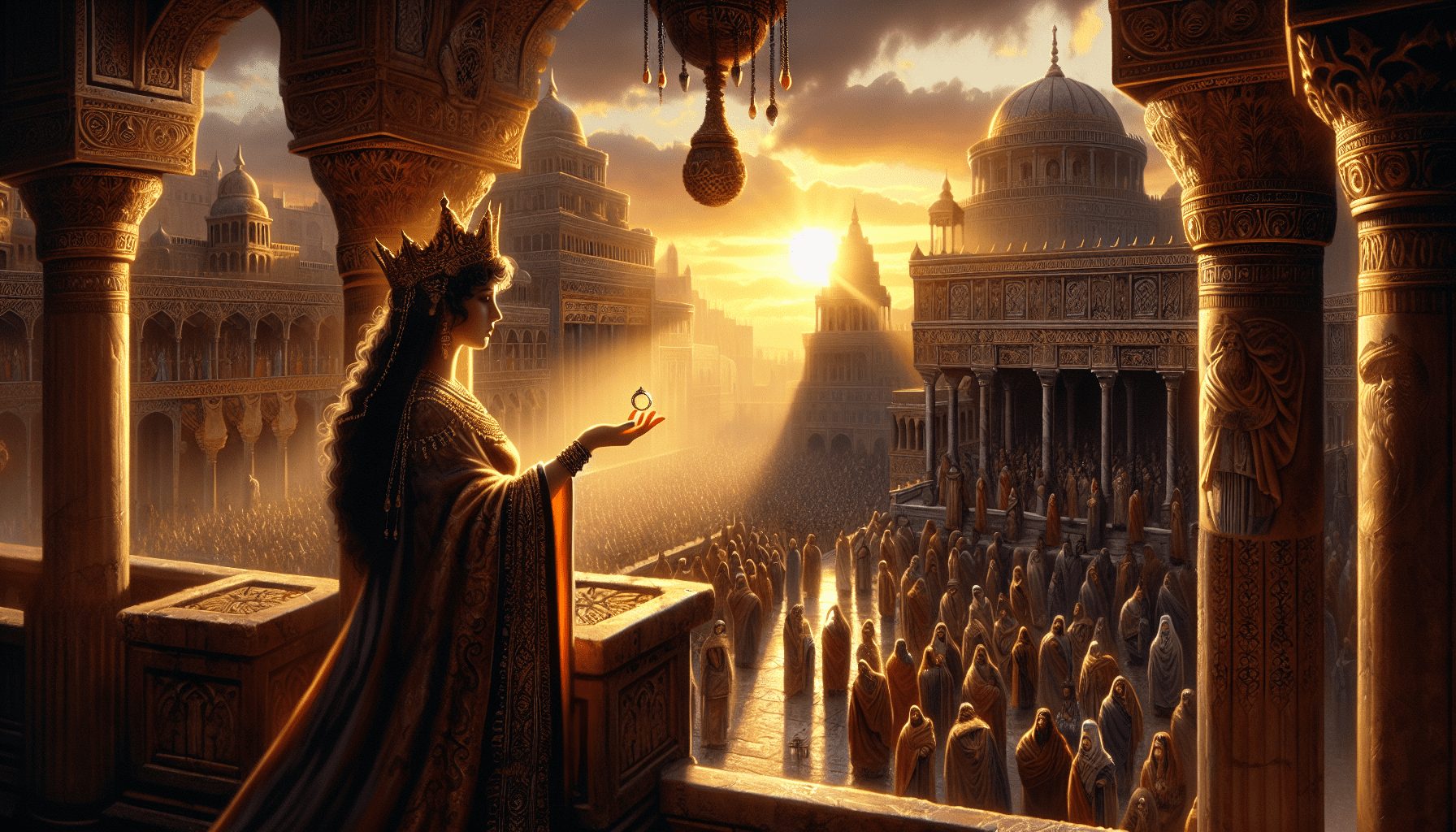**The Faith of Hezekiah: A King Who Trusted in the Lord**
In the days when the kingdom of Israel had fallen to the might of Assyria, and its people were carried away into exile for their idolatry and rebellion against God, there arose in Judah a king unlike those before him. His name was Hezekiah, son of Ahaz, and he reigned in Jerusalem for twenty-nine years. He was a man of unwavering faith, a king who walked in the ways of his forefather David, holding fast to the commandments of the Lord.
### **A Reign of Righteousness**
From the moment Hezekiah took the throne at the age of twenty-five, he sought to undo the wickedness that had crept into Judah. His father, Ahaz, had closed the doors of the Temple, allowing idol worship to flourish in the high places, even sacrificing his own son in the fire to false gods. But Hezekiah would have none of it.
With a heart aflame for the Lord, he gathered the priests and Levites and commanded them to cleanse the Temple of all defilement. The dust of neglect was swept away, the altars to foreign gods were smashed, and the sacred vessels were purified. The doors of the House of the Lord were thrown open once more, and the sweet aroma of incense and burnt offerings rose to heaven. The people, who had long strayed, were called back to the covenant.
Hezekiah did not stop there. He tore down the high places where men had bowed to Asherah poles and stone idols. He even destroyed the bronze serpent Moses had made in the wilderness—for though it had once been a symbol of God’s healing, the people had turned it into an object of worship, calling it Nehushtan. To Hezekiah, nothing was sacred if it stood between Judah and the living God.
### **The Shadow of Assyria**
Yet even as Hezekiah restored true worship, a storm gathered on the horizon. The mighty Assyrian empire, under King Sennacherib, had already devoured the northern tribes of Israel. Now, like a lion scenting prey, Assyria turned its gaze toward Judah.
Sennacherib’s armies swept through the land like a flood, capturing fortified cities one by one. Lachish, a mighty stronghold, fell after a brutal siege. The Assyrians, known for their cruelty, impaled prisoners on stakes and flayed the skin from their enemies as warnings to those who dared resist.
Hezekiah, seeing the devastation, knew his own strength was nothing before the might of Assyria. But instead of surrendering or seeking alliances with pagan kings, he turned to the Lord. He sent word to Sennacherib, admitting his fault in rebelling (for he had once withheld tribute) but now sought peace, offering silver and gold from the Temple to appease the Assyrian king.
Sennacherib took the treasure—yet his hunger was not satisfied. He sent his commanders, the Tartan, the Rabsaris, and the Rabshakeh, with a vast army to Jerusalem. They stood outside the city walls, their armor gleaming, their spears like a forest of death. The Rabshakeh, a man skilled in deceit, called out in Hebrew so all the people on the walls could hear:
*”Thus says the great king of Assyria: On what do you rest this trust of yours? Do you think mere words are strategy and power for war? Who are you relying on, that you have rebelled against me? Behold, you are trusting in Egypt, that broken reed of a staff, which will pierce the hand of any man who leans on it! And if you say to me, ‘We trust in the Lord our God,’ is it not He whose high places and altars Hezekiah has removed, saying Judah must worship only in Jerusalem?”*
The people listened in silence, their hearts trembling. The Rabshakeh twisted the truth, making Hezekiah’s reforms seem like an offense to God rather than obedience. Then he uttered blasphemy:
*”Has any god of the nations delivered his land from the hand of the king of Assyria? Where are the gods of Hamath and Arpad? Where are the gods of Sepharvaim? If they could not save their people, how will the Lord save Jerusalem?”*
### **A King’s Prayer and God’s Answer**
Hezekiah, upon hearing these words, tore his robes and covered himself in sackcloth—a sign of deep mourning. He went into the Temple and spread before the Lord the letter of threats from Sennacherib. Then he prayed:
*”O Lord, God of Israel, enthroned above the cherubim, You alone are God over all the kingdoms of the earth. You have made heaven and earth. Incline Your ear, O Lord, and hear; open Your eyes, O Lord, and see. Hear the words of Sennacherib, which he has sent to mock the living God. Truly, O Lord, the kings of Assyria have laid waste the nations and their lands, and have cast their gods into the fire, for they were no gods, but the work of men’s hands. Now therefore, O Lord our God, save us from his hand, that all the kingdoms of the earth may know that You alone, O Lord, are God.”*
That night, the angel of the Lord went out and struck down 185,000 Assyrians in their camp. When morning dawned, the fields were littered with corpses. Sennacherib, who had boasted as if he were a god, broke camp and fled back to Nineveh in disgrace. Years later, as he bowed in the temple of his false god Nisroch, his own sons struck him down with the sword—fulfilling the word of the Lord.
### **The Legacy of Faith**
Thus, the Lord delivered Hezekiah and Jerusalem, not by sword or shield, but by His mighty hand. The nations heard and trembled. Hezekiah’s faith was rewarded, and his reign was marked by peace and prosperity. He built storehouses, strengthened the walls, and even received envoys from distant Babylon—though this would later bring testing.
But in the days of crisis, Hezekiah stood firm. He proved that a king who trusts in the Lord need not fear the might of empires, for the battle belongs to God. And so, his story remains a testament: *Those who honor the Lord will never be put to shame.*




